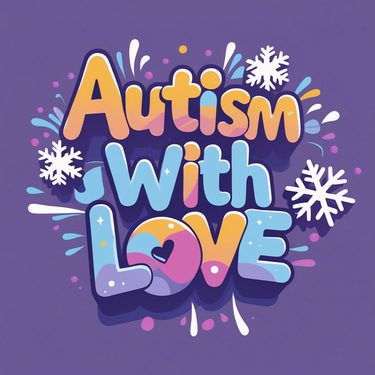CBD Supplements and Autism: Current Research and Responsible Considerations
Now, before you picture anything that might raise eyebrows, let's clear something up: CBD is not the same as THC (tetrahydrocannabinol). THC is the compound that gets you "high." CBD.
AUSTISM SUPPORT
W. Love
3/31/20253 min read
So, 420 is coming lol. Let's chat about CBD and your autistic child. You might have heard whispers of it on reddit, seen it in gummies or lotions popping up in dispensaries, and wondered, "Could this help my child or cousin with autism?" We all have a cousin with autism lololol. It's a hot topic, and rightfully so. So, let's dive in, keep it real, and explore what we know so far. CBD is not rolling a blunt and smoking with your child every night, let's be smart about this people. It has the potential to be controlled and should be just like everything you introduce to children.
What's the Buzz About CBD? Get it? Lol, but guess what? There's no buzz. Literally, no high.
First things first, what exactly is CBD? It stands for cannabidiol, and it's one of many compounds found in the cannabis plant. Now, before you picture anything that might raise eyebrows, let's clear something up: CBD is not the same as THC (tetrahydrocannabinol). THC is the compound that gets you "high." CBD, on the other hand, is non-psychoactive. It interacts with your body's endocannabinoid system, which plays a role in regulating things like mood, sleep, and appetite.
Why the Interest in Autism?
Many individuals with autism face challenges with sensory processing, anxiety, sleep disturbances, and sometimes even aggression. These challenges can make daily life difficult, and families are always searching for ways to improve quality of life. That's where CBD comes in. Some studies suggest it might offer benefits in these areas.
What the Research Says (So Far)
Now, let's be super clear: this is not medical advice. The research is still evolving, and more studies are needed. But here's what I've seen from my own research:
Mood & Anxiety: Some studies have shown that CBD may help reduce anxiety symptoms. It interacts with serotonin receptors in the brain, which play a role in mood regulation. For individuals with autism who experience heightened anxiety, this could be a potential benefit.
Sleep: Sleep disturbances are common in autism. CBD may help promote relaxation and improve sleep quality. It might make it easier to fall asleep and stay asleep.
Appetite: Some individuals with autism experience food selectivity or appetite issues. CBD might help regulate appetite, making mealtime less stressful.
Behavioral Regulation: Some studies have shown a decrease in aggressive or self-injurious behaviors.
Sensory sensitivity: There is some emerging research that CBD can help to regulate the nervous system, potentially decreasing some sensory sensitivity.
Types of CBD Products: The world of CBD can be a bit overwhelming. You'll find it in various forms, including:
Gummies: Tasty and easy to take, but the dosage can be tricky to control.
Oils and Tinctures: Taken under the tongue, they offer faster absorption.
Lotions and Creams: Applied topically, they might help with localized pain or skin issues.
Pills and Capsules: Provide a precise dosage.
Patches: Allow for slow, continuous release of CBD. ... Possibly.
Because research is ongoing, it's crucial to talk to your doctor before trying CBD. They can help you understand potential risks, interactions with other medications, and appropriate dosages.
Talking to Your Doctor
When you have that conversation, here are a few tips:
Be open and honest about your concerns and goals.
Bring any research you've found.
Ask about potential interactions with other medications.
Discuss dosage and monitoring.
Bring a list of any current medications, supplements, or vitamins.
We're focusing on older children because younger children's systems are still developing. Puberty can be a wild ride, with hormonal changes and emotional ups and downs. For individuals with autism, this can be even more challenging. If you're looking for support with mood regulation or sleep during this time, and you're hesitant about long-term medication, CBD might be something to explore with your doctor.
Transitions in life, like moving schools, can cause a lot of stress for autistic children; CBD could be a short term solution to help during these transitions.
A Gentle Reminder
It's important to approach CBD with a balanced perspective. It's not a magic bullet, and it might not work for everyone. But for some, it could offer a valuable tool in managing certain challenges. Research is happening worldwide. In the US, studies are focusing on the potential of CBD for various conditions, including autism. Internationally, researchers are also exploring its effects on behavior, sleep, and anxiety. It is important to note that regulations vary from country to country. And state to state for that matter.
Remember, you're not alone on this journey. We're all trying to find what works best for our loved ones. Stay informed, stay open, and keep advocating for the best possible support.
References:
Shannon, S., Lewis, N., Lee, H., & Hughes, J. (2019). Cannabidiol in anxiety and sleep: A large case series. The Permanente Journal, 23, 18-041.
de Camargo RW, de Novais Júnior LR, da Silva LM, Meneguzzo V, Daros GC, da Silva MG, de Bitencourt RM. Implications of the endocannabinoid system and the therapeutic action of cannabinoids in autism spectrum disorder: A literature review. Pharmacol Biochem Behav. 2022 Nov;221:173492. doi: 10.1016/j.pbb.2022.173492. Epub 2022 Nov 13. PMID: 36379443.
Blessing, E. M., Steenkamp, M. M., Manzanares, J., & Marmar, C. R. (2015). Cannabidiol as a potential treatment for anxiety disorders. Neurotherapeutics, 1 12(4), 825-836.
Fuss, J., Benning, S., & Jicha, G. A. (2023). Cannabidiol (CBD) as a Potential Complementary Medicine for Autism Spectrum Disorder: A Systematic Review. Journal of Autism and Developmental Disorders, 1-17.
